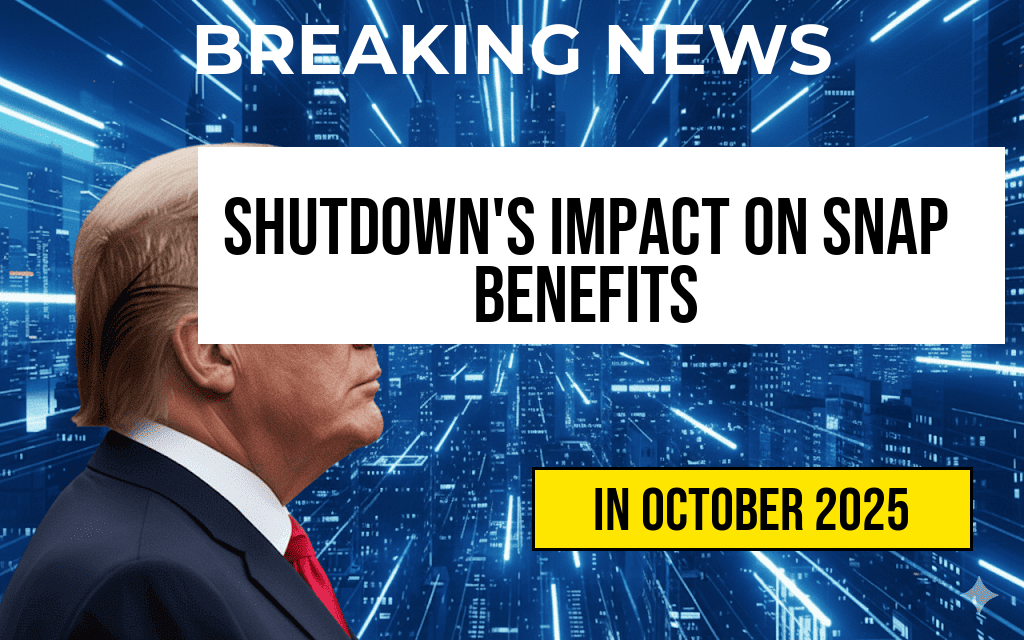The looming threat of a government shutdown has raised significant concerns across multiple sectors, with Supplemental Nutrition Assistance Program (SNAP) benefits and food stamp assistance emerging as critical areas of potential impact. If Congress fails to agree on a funding measure before the current fiscal year expires, millions of Americans relying on these programs could face disruptions in their monthly support. Historically, government shutdowns have led to delays and uncertainties in social safety net programs, but the severity and scope of effects vary based on legislative actions and contingency plans. This article examines how a possible shutdown might influence SNAP distributions, the duration of disruptions, and what beneficiaries and stakeholders should anticipate as negotiations continue.
Understanding SNAP and Its Funding Structure
The Supplemental Nutrition Assistance Program, commonly known as food stamps, is administered federally but operates through state agencies to provide nutrition assistance to low-income individuals and families. Funding for SNAP is included in the federal budget, which must be approved annually. When a government shutdown occurs, non-essential federal operations are typically paused, affecting programs that depend on federal funding. However, because SNAP benefits are critical for millions, policymakers often prioritize their continuation, either through temporary measures or emergency appropriations.
Potential Impacts During a Government Shutdown
Disruption of Benefit Issuance
- In the event of a shutdown, SNAP benefits distribution might face delays or interruptions, especially if funding is not extended or emergency measures are not enacted swiftly.
- States often rely on federal funds to distribute benefits monthly; without timely funding, recipients could experience delays in receipt of benefits, leading to food insecurity.
- Historically, during the 2018-2019 government shutdown, some states reported delays in benefits, though emergency provisions sometimes mitigate immediate impacts.
Impact on Retailers and Food Suppliers
- Loss of timely benefits could reduce the purchasing power of SNAP recipients, leading to decreased sales for grocers and suppliers participating in the program.
- Some retailers might experience increased demand once benefits are restored, but initial disruptions could cause confusion and financial strain.
Policy Responses and Emergency Measures
Congress has often enacted continuing resolutions or emergency appropriations to ensure uninterrupted SNAP benefits during shutdowns. These measures aim to prevent the most severe disruptions but depend on legislative consensus and timely action. For example, during previous shutdowns, the U.S. Department of Agriculture (USDA) has issued guidance to state agencies to continue benefits where possible and to communicate clearly with recipients about any delays.
Duration and Severity of Potential Disruptions
Short-Term Shutdowns
If a shutdown lasts only a few days, the impact on SNAP benefits is likely minimal, with programs possibly operating on residual funds or emergency measures. Nonetheless, even brief disruptions can cause anxiety among recipients and complicate food planning.
Extended Shutdowns
Longer shutdowns—spanning weeks—pose a greater risk of benefits being delayed or reduced. Recipients might face challenges in obtaining adequate nutrition, especially in vulnerable populations such as children, seniors, and disabled individuals. The USDA has contingency plans to mitigate some effects, but the extent of relief depends on the duration and legislative support.
How Recipients Can Prepare and Respond
| Action | Description |
|---|---|
| Monitor Communications | Stay informed through official channels such as USDA Food and Nutrition Service updates and local agency notices. |
| Plan Financially | Conserve resources and prioritize essential purchases in case of delays. |
| Seek Community Resources | Identify local food banks and assistance programs that can provide interim support if needed. |
Looking Ahead: Legislative and Policy Implications
Congress faces increasing pressure to pass comprehensive funding bills that include provisions for social safety net programs like SNAP. The bipartisan consensus on the importance of avoiding disruptions underscores the program’s role in combating hunger and poverty. However, political disagreements over budget allocations and policy reforms could prolong uncertainty. Stakeholders are watching closely for legislative developments, as the outcome will determine whether the vulnerable populations relying on SNAP will face hardship or continued stability.
For additional context on government shutdowns and social programs, see Wikipedia’s overview of U.S. government shutdowns and the USDA’s official SNAP page.
Frequently Asked Questions
What is the impact of a government shutdown on SNAP benefits?
A government shutdown can lead to delays or suspension of SNAP benefits, potentially affecting millions of recipients’ ability to access food assistance during the shutdown period.
Will food stamp assistance continue during a government shutdown?
During a shutdown, food stamp assistance may be temporarily halted or reduced, depending on federal funding allocations. States may also implement contingency plans to mitigate disruptions.
How long could SNAP benefits be affected during a shutdown?
The duration of SNAP benefit disruptions depends on the length of the government shutdown and available emergency funding. Short-term shutdowns may cause minimal impact, while prolonged closures could significantly affect benefits.
Are there any measures in place to protect food assistance during a shutdown?
Some states and agencies may have contingency plans or reserve funds to support food assistance programs temporarily, but overall protection varies depending on federal and state policies.
What should SNAP recipients do if their benefits are delayed due to a shutdown?
If SNAP benefits are delayed, recipients should contact their local assistance office for guidance and explore community resources or emergency food programs to meet their immediate needs.








